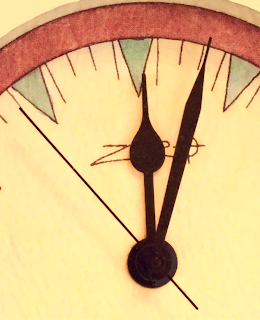There they go again-- lamenting howls from our old media gatekeepers. As usual, they are crying and howling over social media and how it's led to the demise of our culture. Oh that's rich (pun intended, Frank), coming from these cynics.
First we have "journalist", Mitch Albom, who snarkily chides sports figures that
Yo, athletes: Twitter truly can b bad 4 u! Now granted, he has a point about public figures who post stuff online that they may quickly regret. But we've been teaching this lesson to our school kids for years, so I didn't find it to be particularly enlightening. Instead, I thought it was pretty ironic, because nearly all the sports beat writers in Mitch's town-- the actual
journalists-- monitor those athletes twitter posts like hawks these days and they use them for content in their own tweets!
In fairness to Mitch, the stupidity of Twitter is only a subtext of his column. For Maureen Dowd, social media is actually a running "sewer." In a rare,
"serious" column, she quotes grossly offensive tweets and online posts about the rape of CBS reporter, Lara Logan. She even contends though an expert that "while technology is amoral, he said, our brains may be rewired in disturbing ways".
I certainly share Dowd's offense at the "bizarre, voyeuristic Internet culture" she criticizes. But I wondered a couple of things while reading: 1) Does Dowd know that most of us
choose which authors we attend to on Twitter, Facebook, and other social media sources? 2) Have any major internet content providers contributed more vulgarity and offense to civil course then the
newspapers? Readers are welcome to post anonymous remarks on any kind of story in my local paper and the assorted comments usually include all kinds of sewer worthy statements. I've wondered, why would a newspaper invite comment on local violent crimes, for example?. I assume that these forums are encouraged to bring eyeballs to the online advertisements. So, yes, Maureen, what you decry is deplorable. But at the risk of tarring with a broad brush, it seems to me that you have chosen to toil in an industry that seeks to serve as a conduit for the very filth you denounce.
Even more outrageous was a recent column by Frank Rich. Granted , like Bill O'Reilly and other media titans, it is Rich's schtick to be bombastic and provocative. Nevertheless he detached himself completely from reality over the subject of social media and its
inconsequential effects on revolution in Egypt:
The social networking hype eventually had to subside for a simple reason: The Egyptian government pulled the plug on its four main Internet providers and yet the revolution only got stronger. “Let’s get a reality check here,” said Jim Clancy, a CNN International anchor, who broke through the bloviation on Jan. 29 by noting that the biggest demonstrations to date occurred on a day when the Internet was down. “There wasn’t any Twitter. There wasn’t any Facebook,” he said. No less exasperated was another knowledgeable on-the-scene journalist, Richard Engel, who set the record straight on MSNBC in a satellite hook-up with Rachel Maddow. “This didn’t have anything to do with Twitter and Facebook,” he said. “This had to do with people’s dignity, people’s pride. People are not able to feed their families.”
As
Mary C. Joyce, points out, "Facebook did not cause the revolution, but that is a straw-man argument that not even the so-called cyber-utopians believe. But, as even Mr. Rich’s own newspaper reported:"
While it is almost impossible to isolate the impact of social media tools from the general swirl of events that set off the popular uprisings across the Middle East, there is little doubt that they provided a new means for ordinary people to connect with human rights advocates trying to amass support against police abuse, torture and the Mubarak government’s permanent emergency laws allowing people to be jailed without charges. Facebook and YouTube also offered a way for the discontented to organize and mobilize — and allowed secular-minded young people to seize the momentum from Egypt’s relatively neutered, organized opposition.
From my perspective, Albom, Dowd, and Rich as crusty old media stars from another era, who don't
get new media because they don't like the way it's changed their landscape.
----------------------------------------
Flickr CC Photo by
Dunechaser











